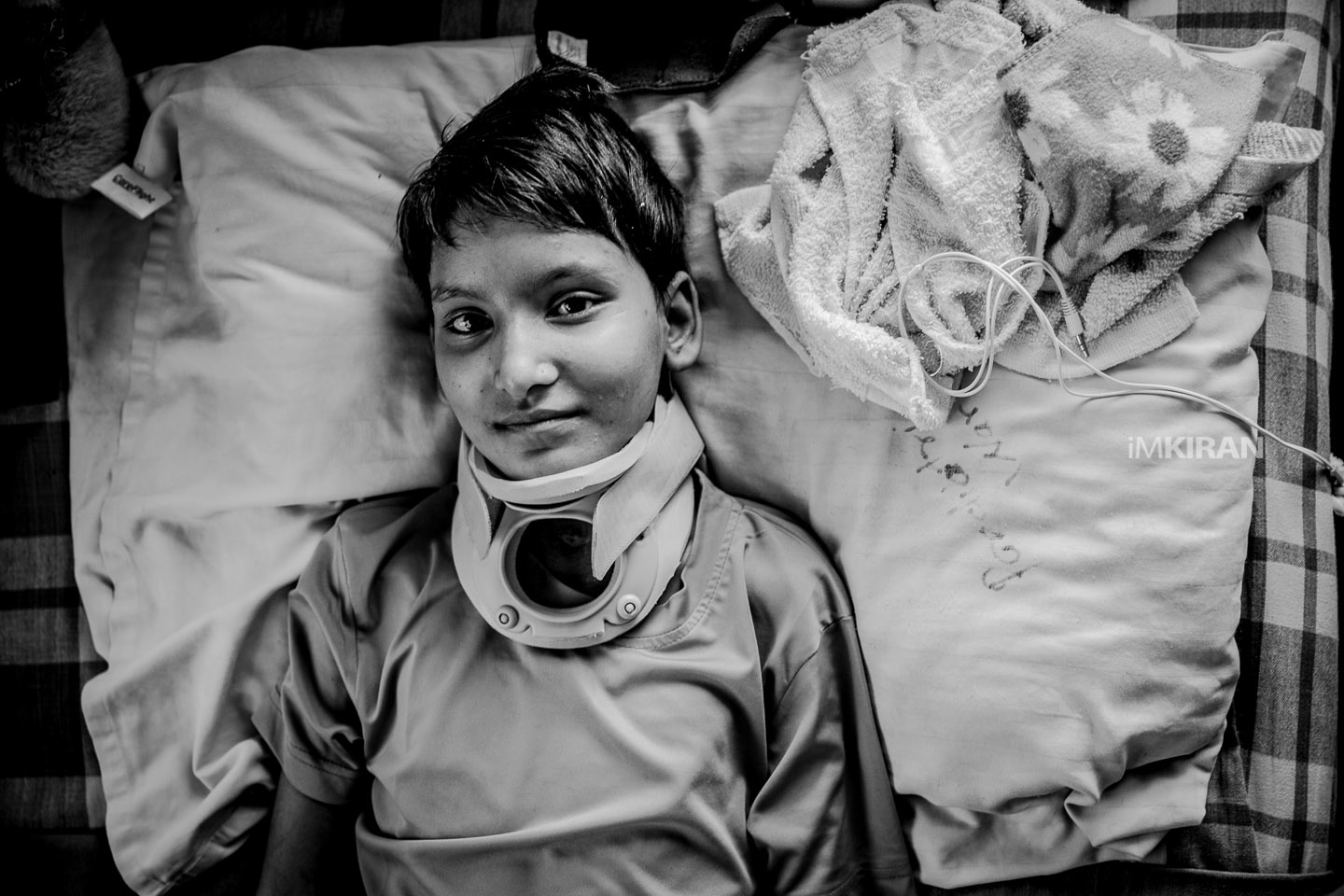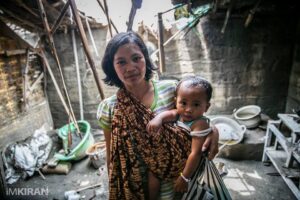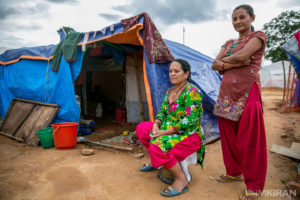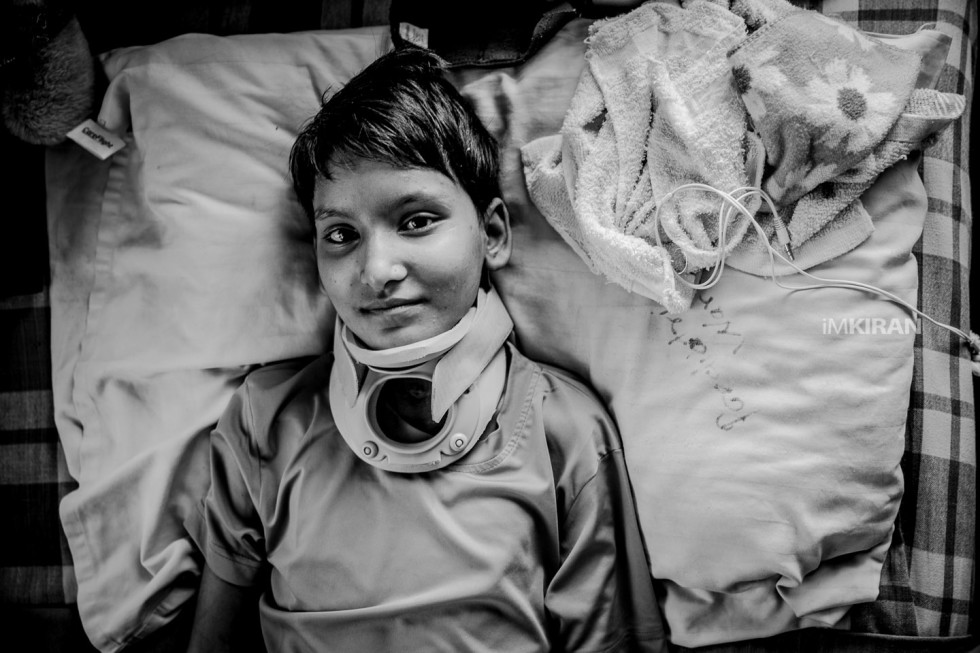
A time stamp photo series of my 24 hours spent in the Spinal Injury Rehabilitation Centre, (SIRC) in Nepal. The only centre where mainly earthquake related patients would come to get treatments. Paralysed and loosing the ability to walk, something we take for granted, the ability to function normally as others and learning to adapt into a new way of life, on a wheelchair.
I put together hourly photo series of my time spent with these patients from the moment they woke to the moment they slept, to give you an inside view of their lives in a spinal injury centre.
As babies most of us took our first steps sometime between 9 and 12 months and walking well by the time we were 14 or 15 months old. What would it feel like to have to learn how not to walk? To adapt to a life thats bound within a chair. Learning new ways to get around, even simple things like brushing your teeth would come with an adaptation.
A total of 190 patients were here with spinal injuries. Many of them living here for almost 5 months now, with no place to go as they lost their homes to the earthquake and some not able to go back to their villages as there are no roads accessible there.Some injured in the young age of 5 to 12 years old. How would you use a wheelchair in a mountain village? That was my first thought.
WAKING UP
5.30am
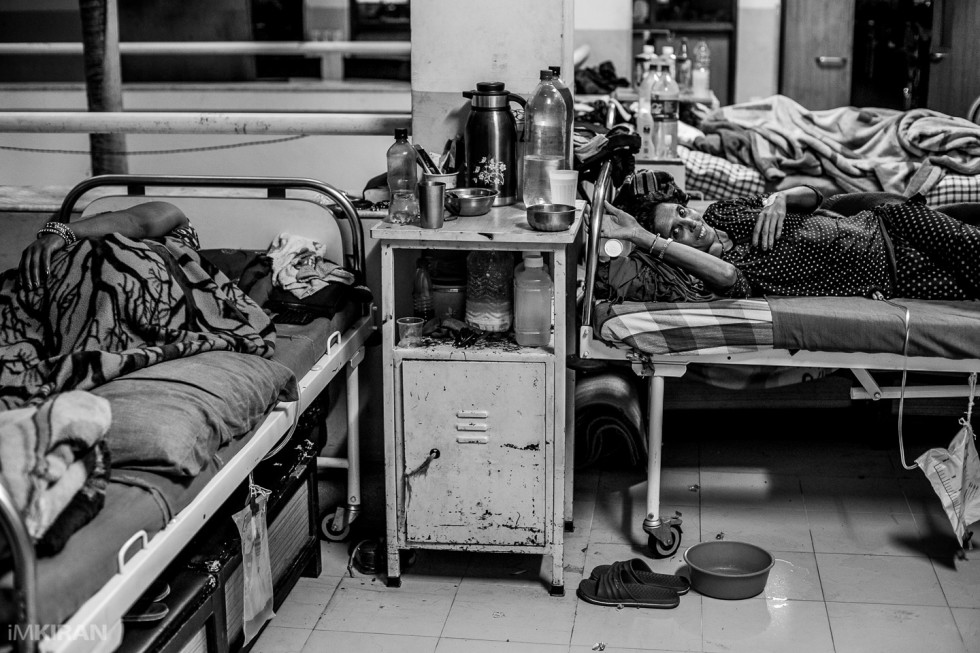
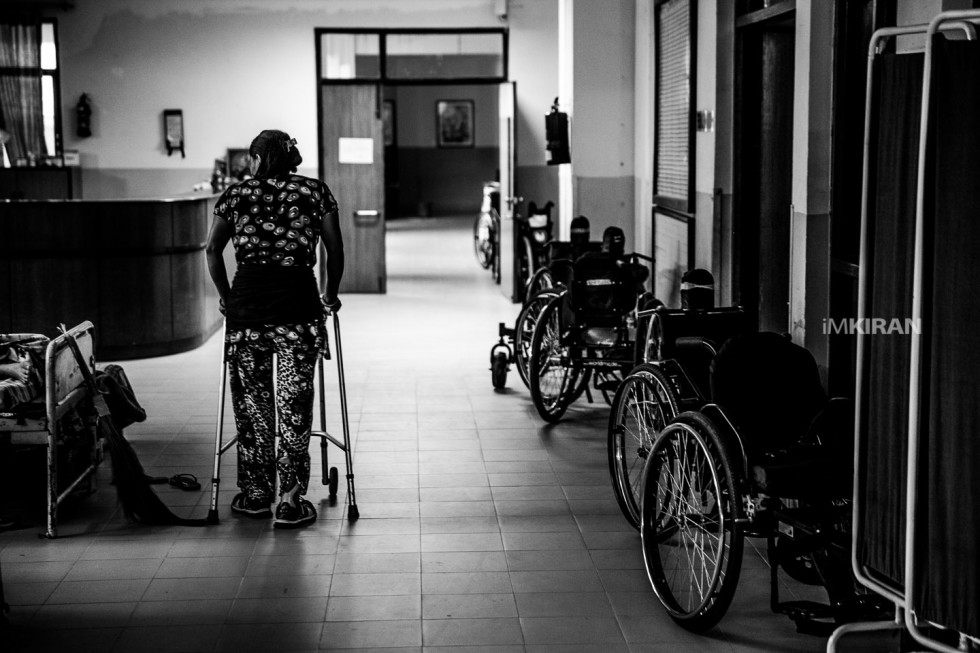
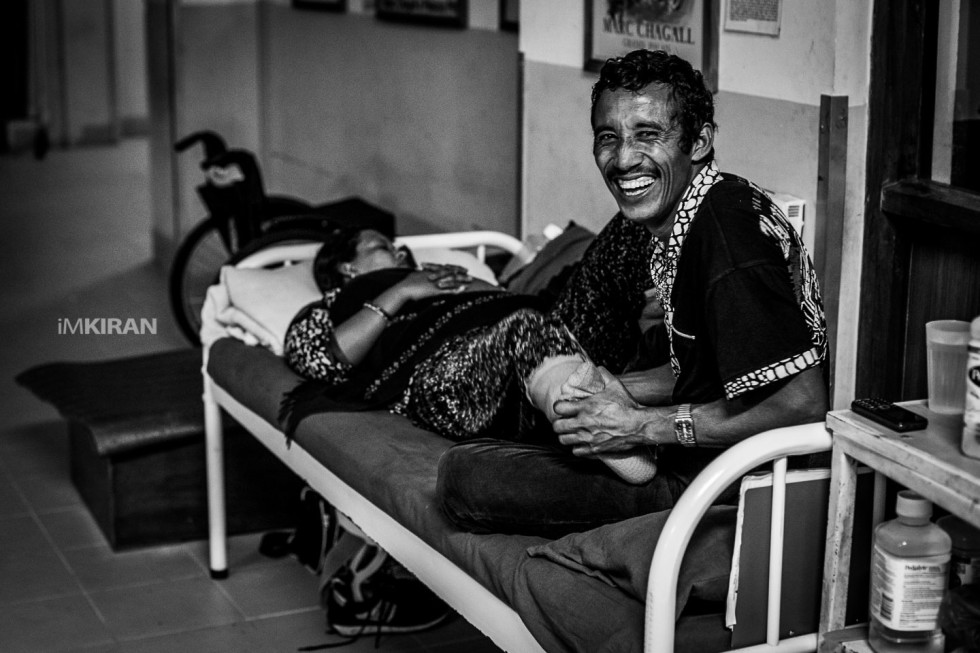
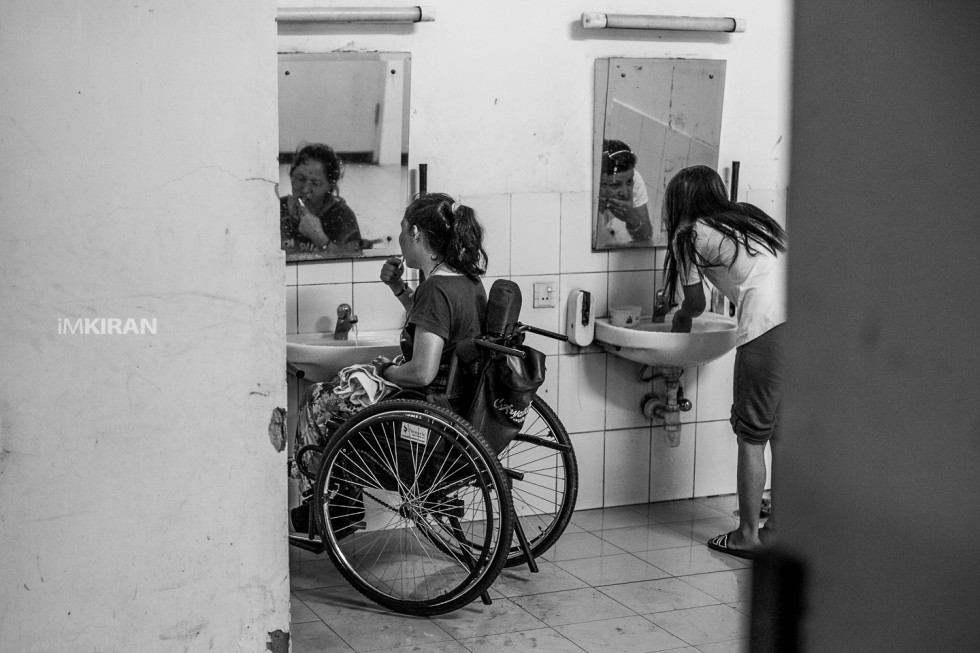
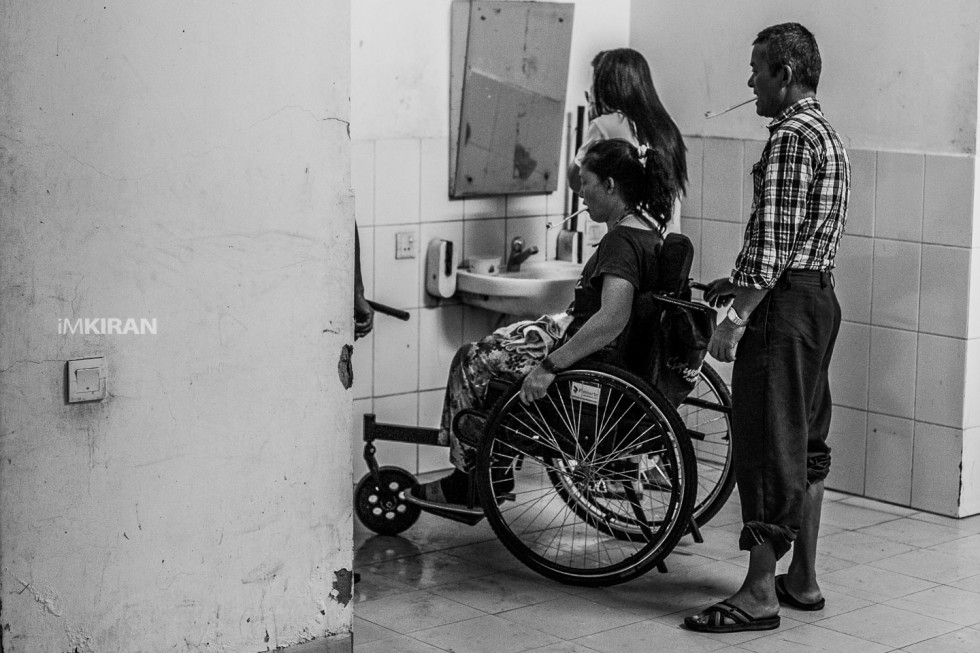
The residence woke up as early as 5am, preparing themselves for another day. With their caretakers helping them out of bed, brushing their teeth, going to the toilet with a plastic bag hanging in their sides. Daily chores that seem a little more adventurous today.
6.30am
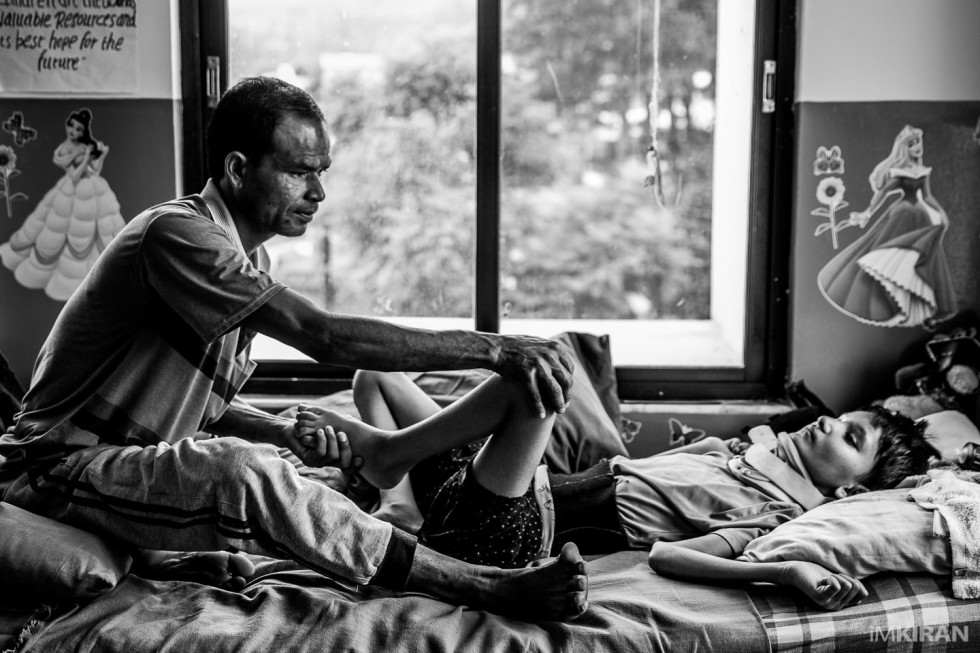
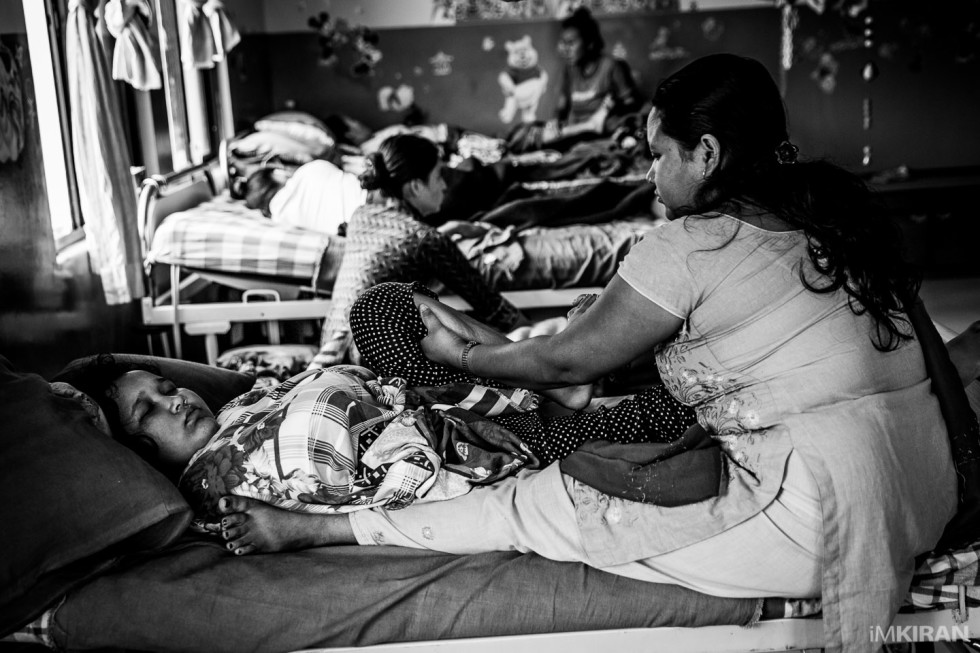
In the children’s ward, parents start the treatments of massaging the legs of their children while they were sleeping. Injured after the earthquake or an accident. On of them was a girl here who was attacked by a tiger, the animal caught her neck and dragged her away while she was playing.
She survived but injured her spinal cord. She had to undergo 2 major surgeries. She is recovering from this trauma today, not talking, she also lost the ability to use her hands and legs.
7.30am
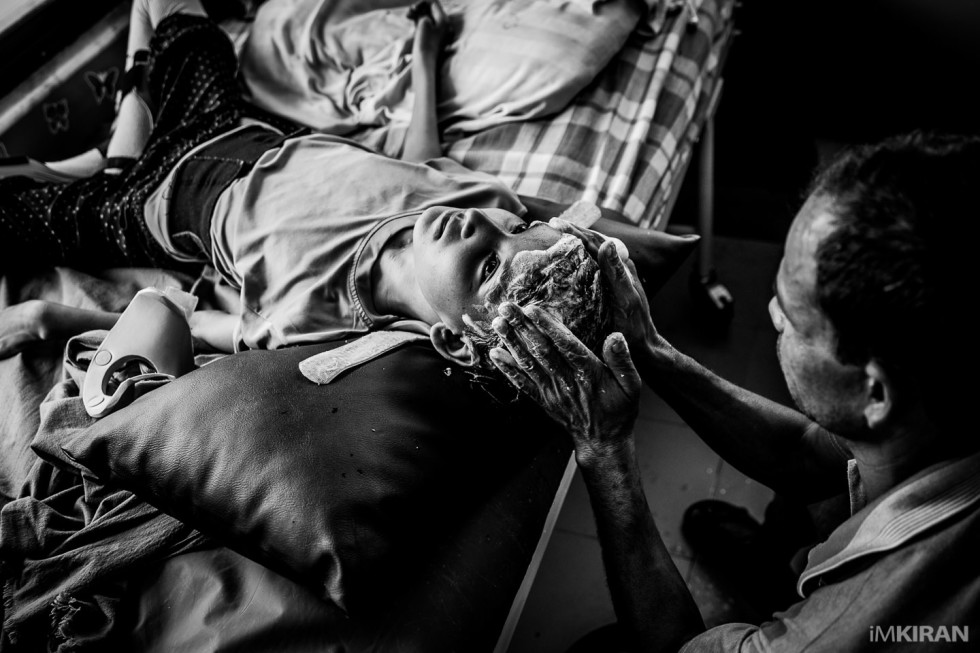
A father caring for her daughter as she is unable to use her own hands and legs after the spinal injury.
8.30am
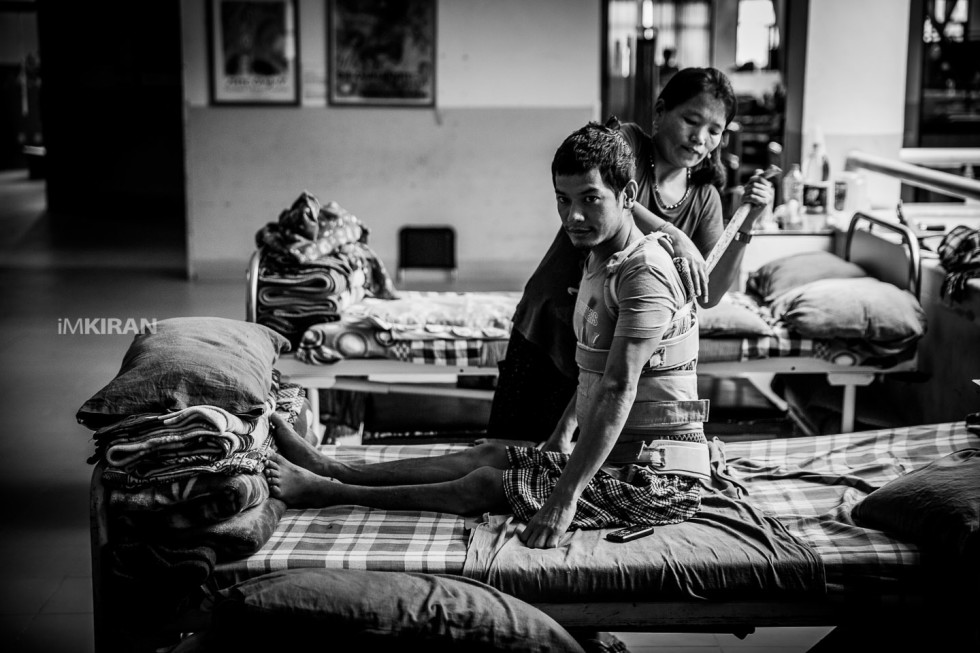
First few routines of waking up is wearing the backbone support belts. A mother helping her son start his day. Next will be getting on the wheelchair, something they learn how to do on their own. I tried it, pretending not to have the use of my legs and I couldn’t get my self on or off without support.
10.00am
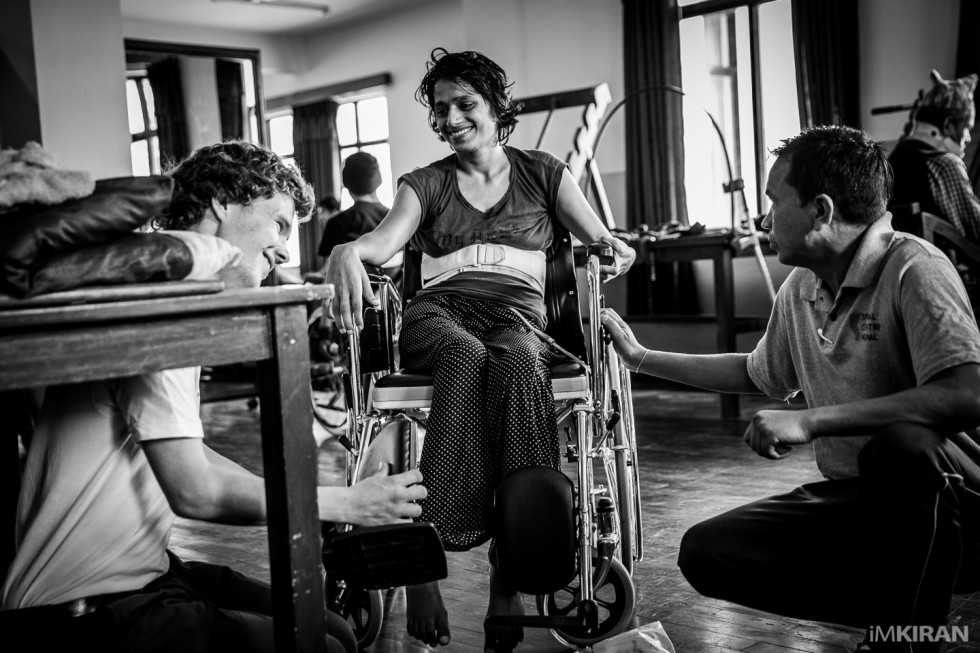
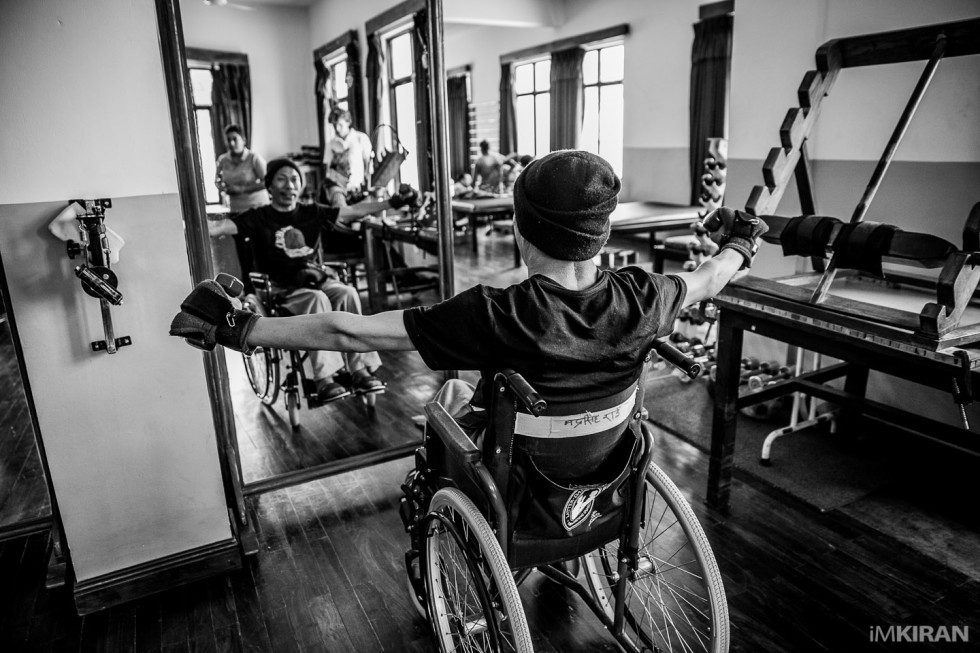
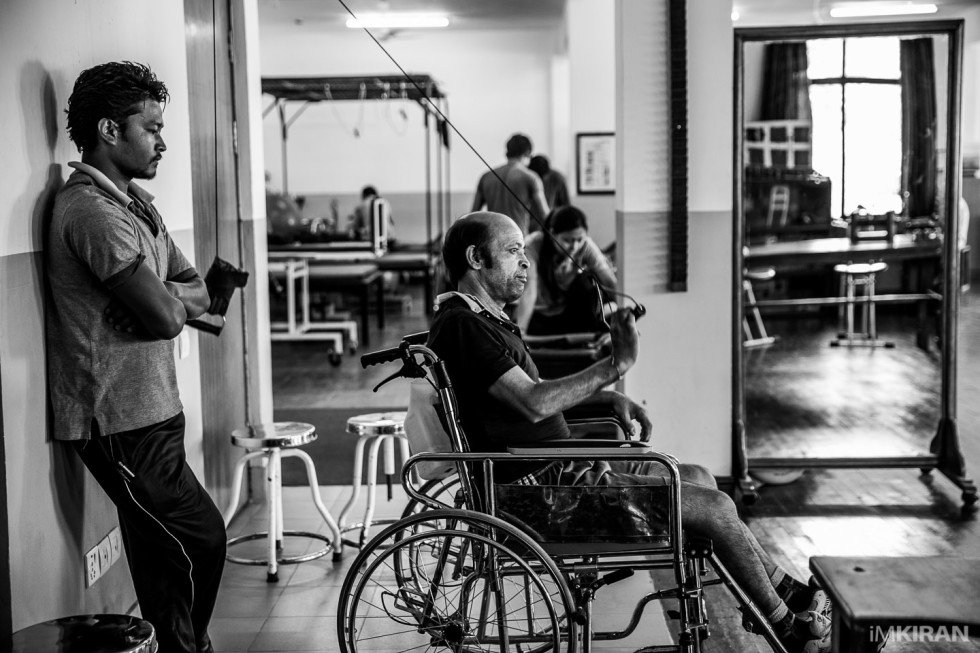
From 10am onwards, they head to the rehabilitation wards for their daily treatments and workouts. Working closely with the SIRC, spinal injury, staff who are trained to work with individual residences. This will go on for one to three months. They are well equipped with all the ‘instruments’ needed for the rehabilitation treatments and motivations.
10.30am
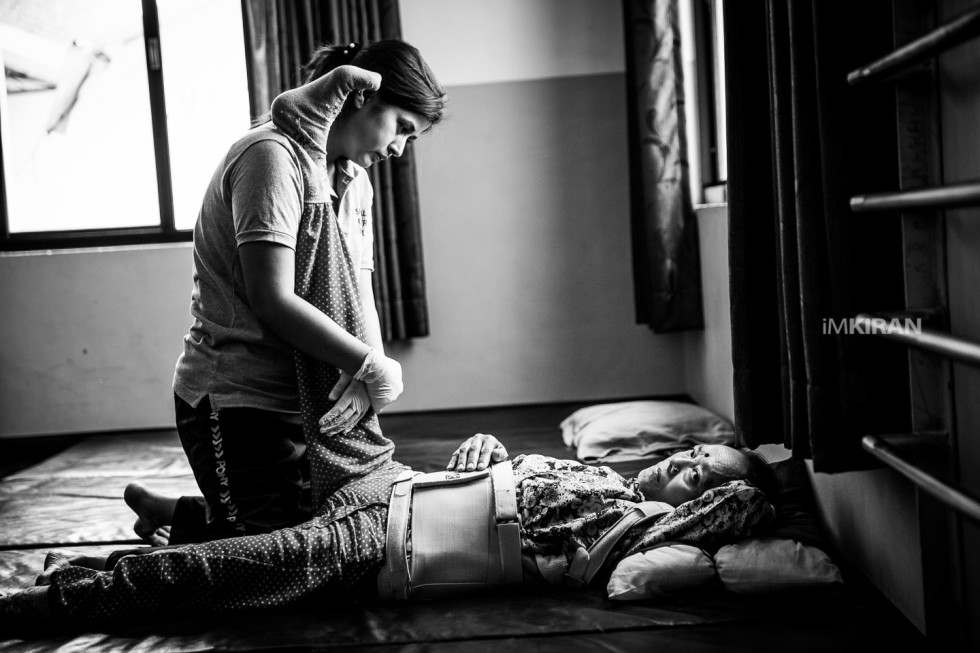
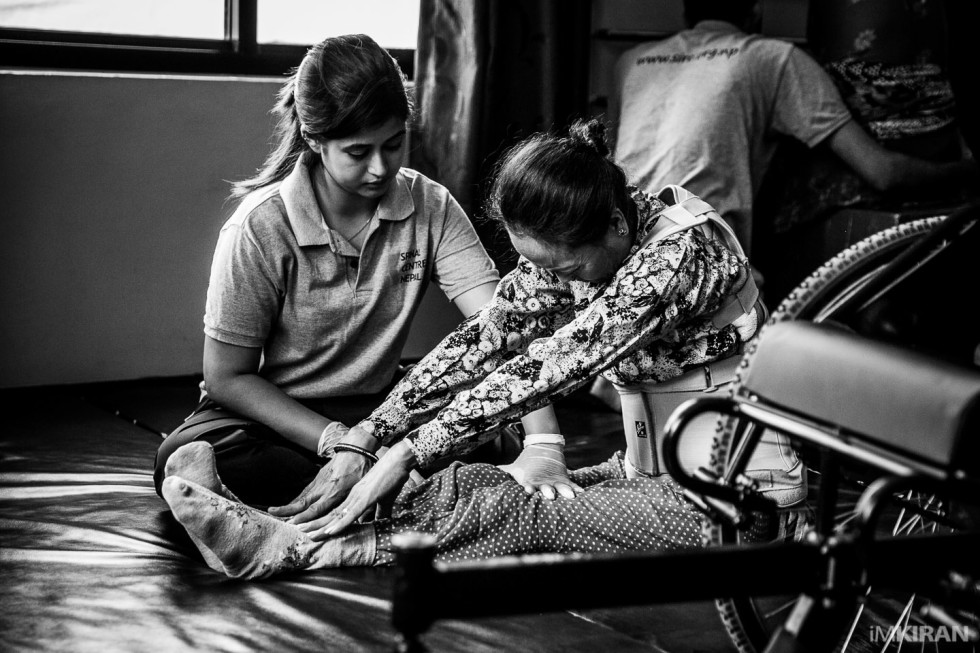
There is a close relationship between this dedicated physical therapists and patients. A bond which is formed throughout their stay here. Trusting your body again, hoping to recover as how it was before. Many still having this dream of walking on their own feet again. For some are here to realise that it will never happen again. The spinal injury is part of their lives today.
11.00am
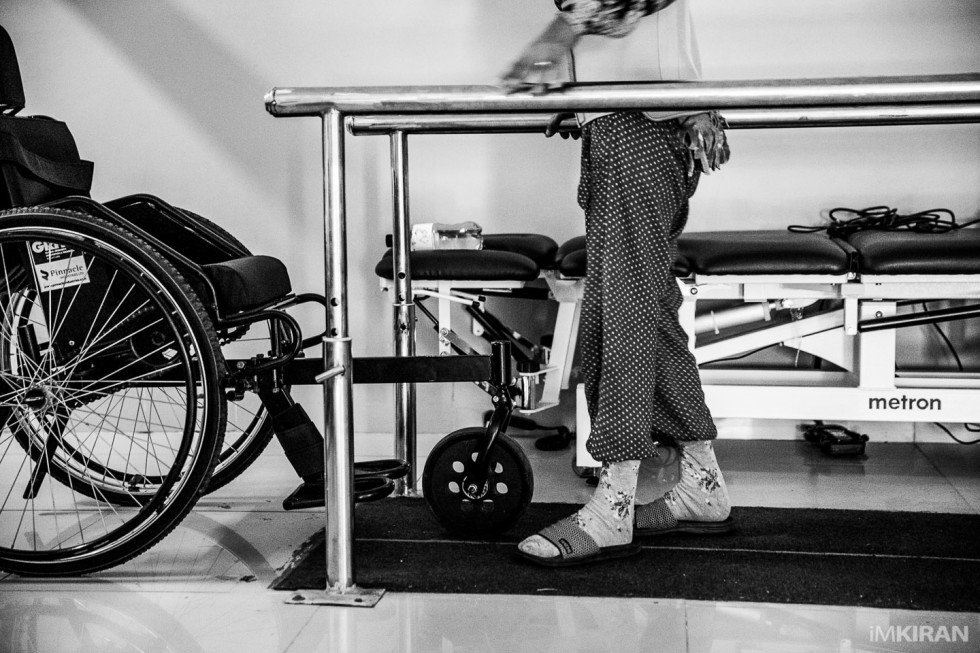
Learning how not to walk after a spinal injury. Bound to sit on a chair with wheels for the rest of your lives.
12.00pm
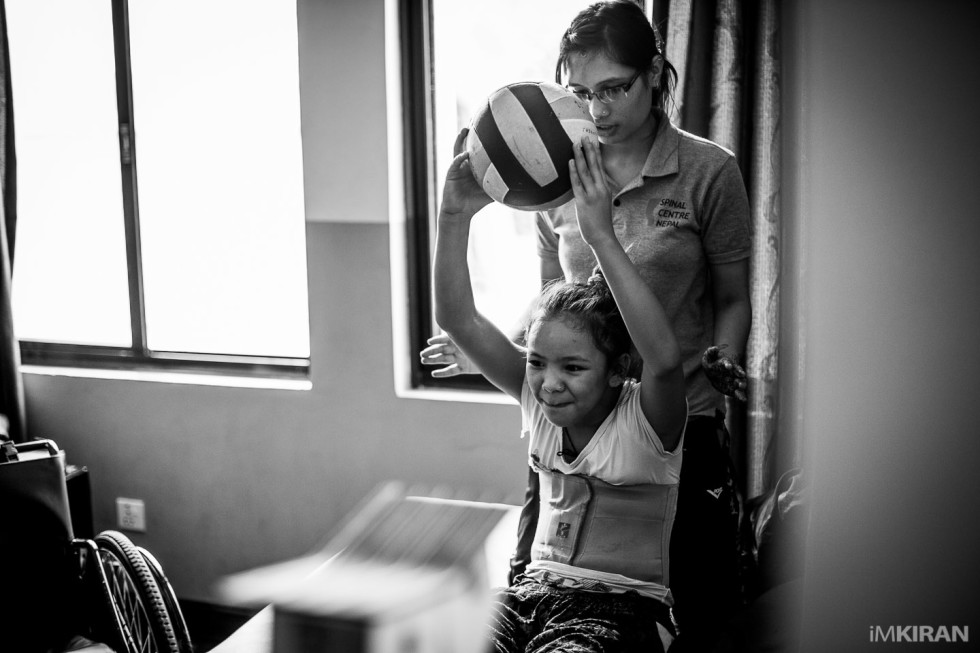
Even the simplest activities today becomes a challenge. A spinal cord injury resulted from a change, temporary or permanent, a change in its normal motor, sensory or autonomic function.
1.30pm
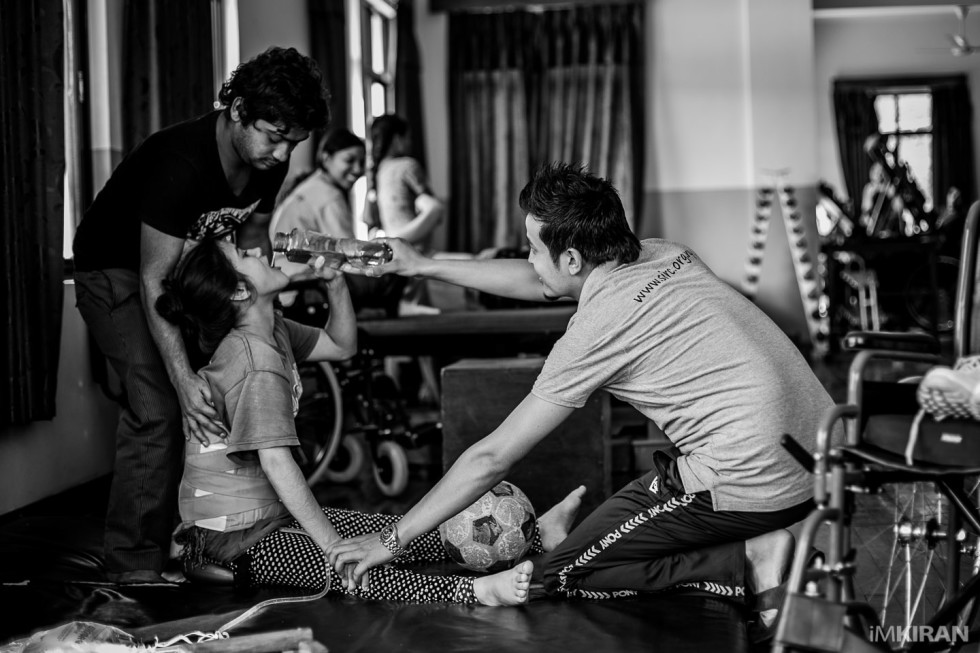
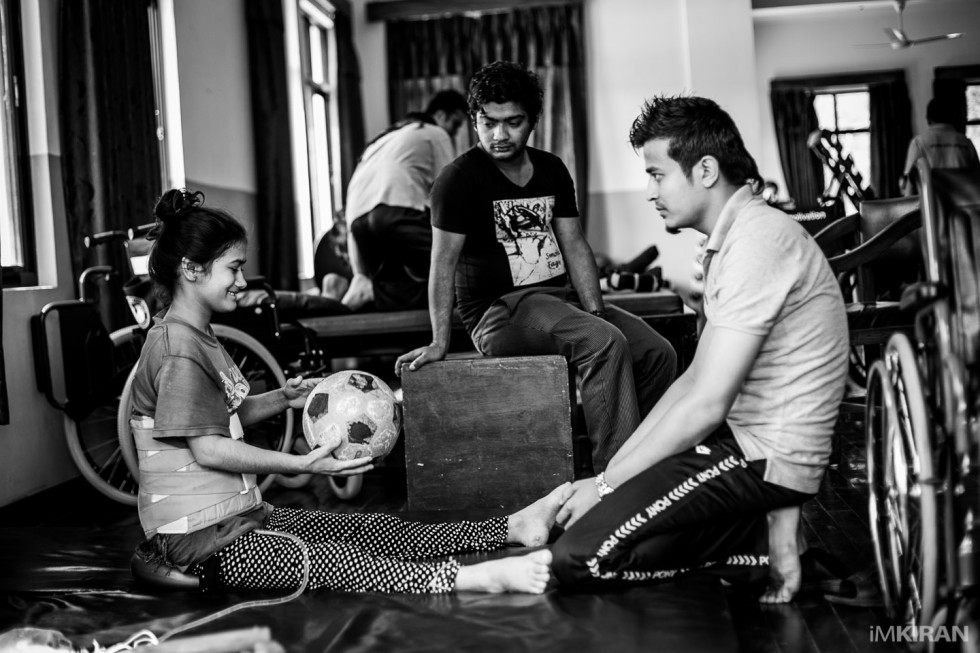
This is a newly wed couple. The husband looks on while a physical therapist helps with basic workouts, learning how to use basic functions again… the grip on your hands, to sit on your own, even drinking from a bottle. He will need to carry on with this treatments and care even after her discharge. Now it’s his turn to look after his wife after her spinal injury.
2.00pm
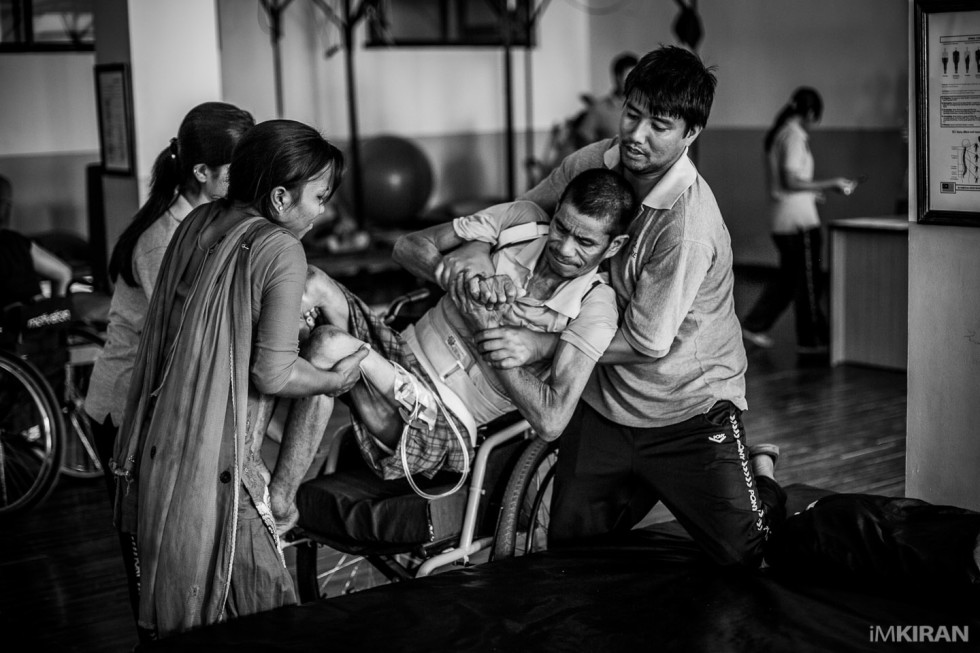
Spinal cord injuries sustained from the earthquake has brought them here, many from villages far away. They will learn how to use the wheelchair, gain some ability to use their hands but some may never walk again. Every one of them will need a caretaker, someone from the family to help.
3.00pm
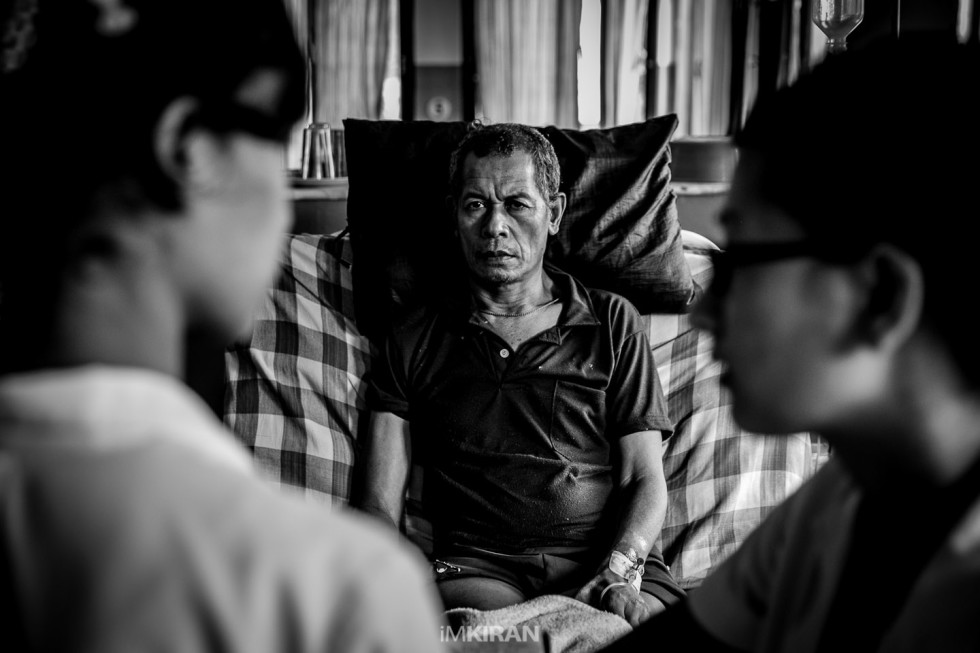
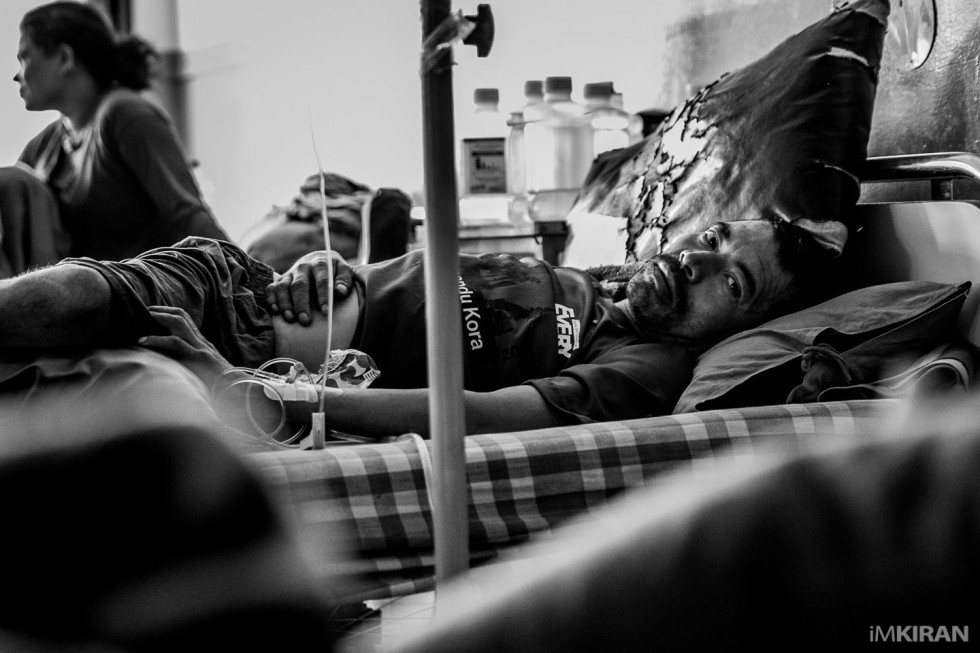
A proud father and a husband looks on while he get treatments. Unsure of his coming future. Residences rest while being cared for by the nurses. Every single one of them have a caretaker, a wive, a husband, a daughter or a son living here with them throughout the treatments.
4.00pm
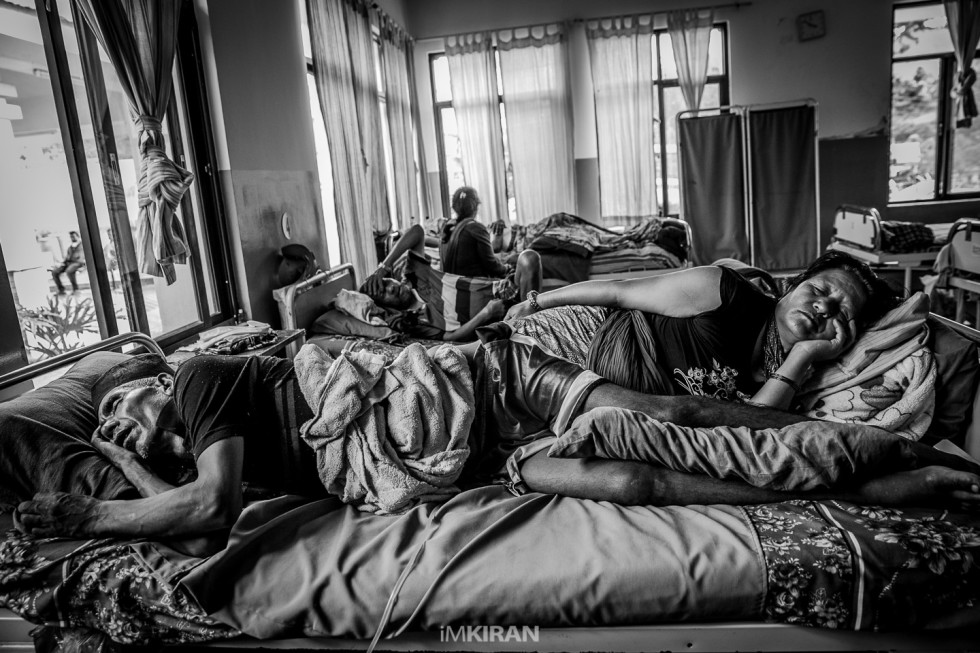
An elderly couple take an afternoon nap, since there is nothing much to do. Her husband was injured in the earthquake.
5.30pm
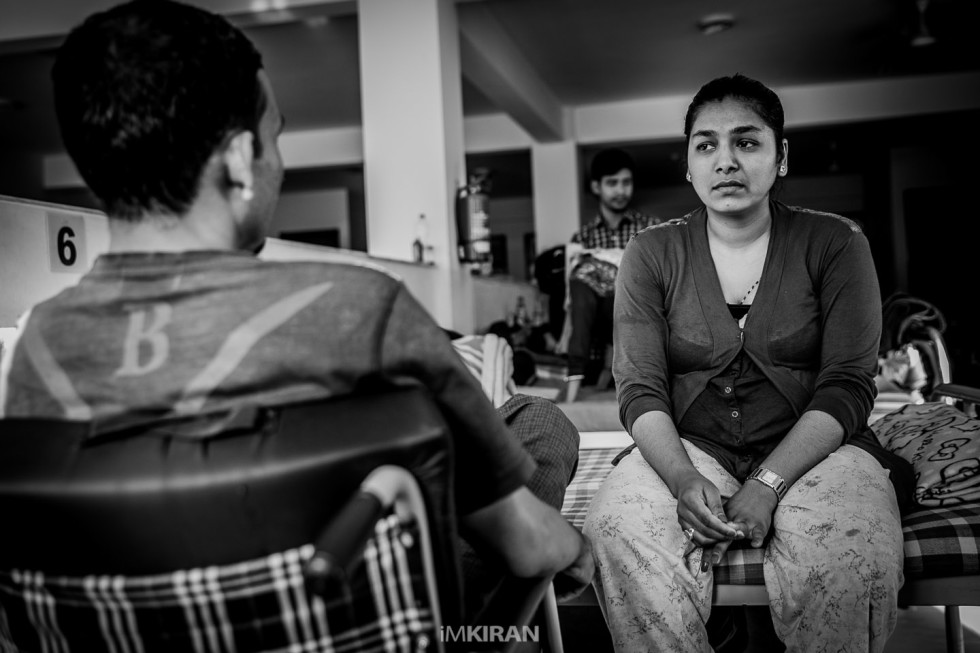
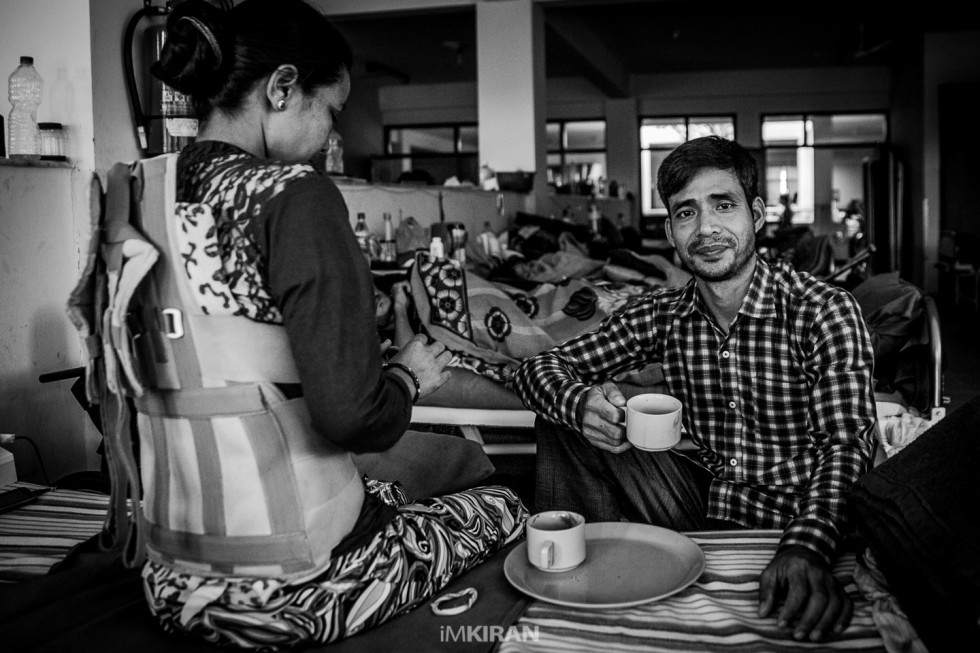
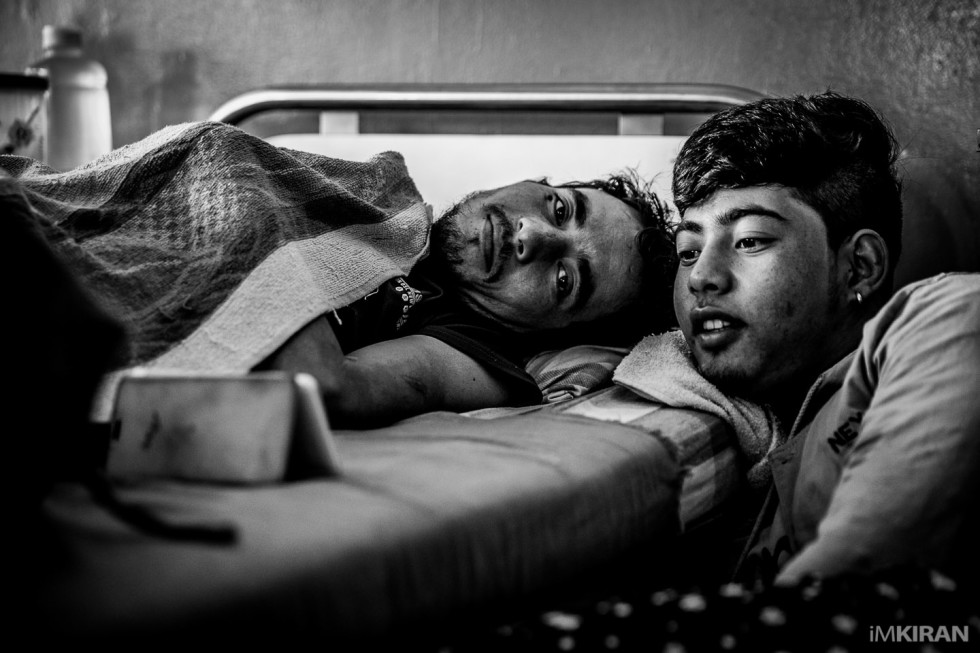
A wife looks on while her husband tells me how he injured his back. She has not been sleeping well too as he is a breadwinner of the family. While they spend their time here, they look upon a new future on how will life go on after this.
Two brothers, watching a Nepali movie via YouTube.
6.00pm
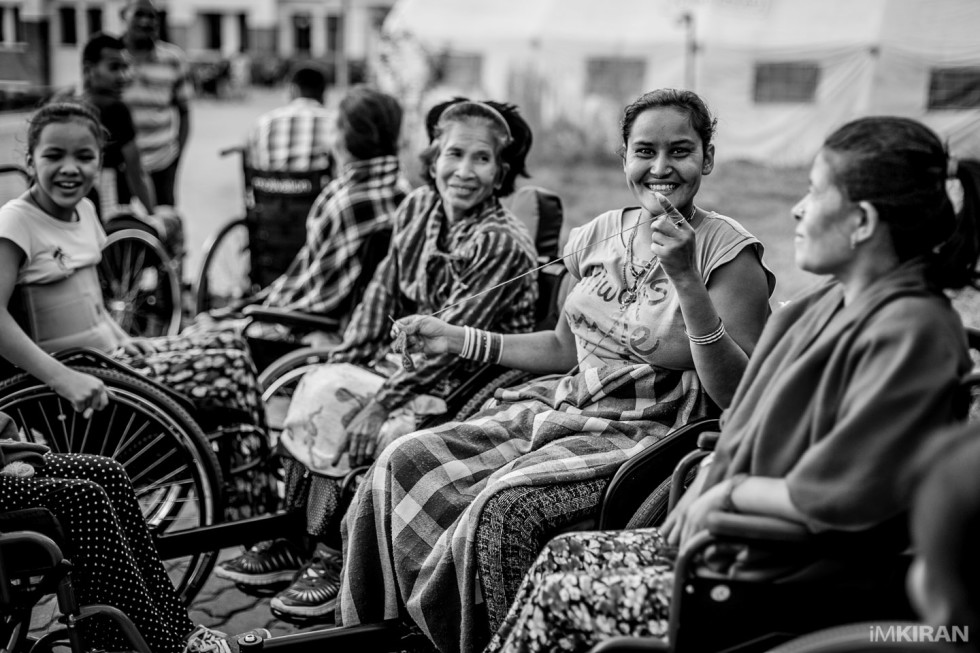
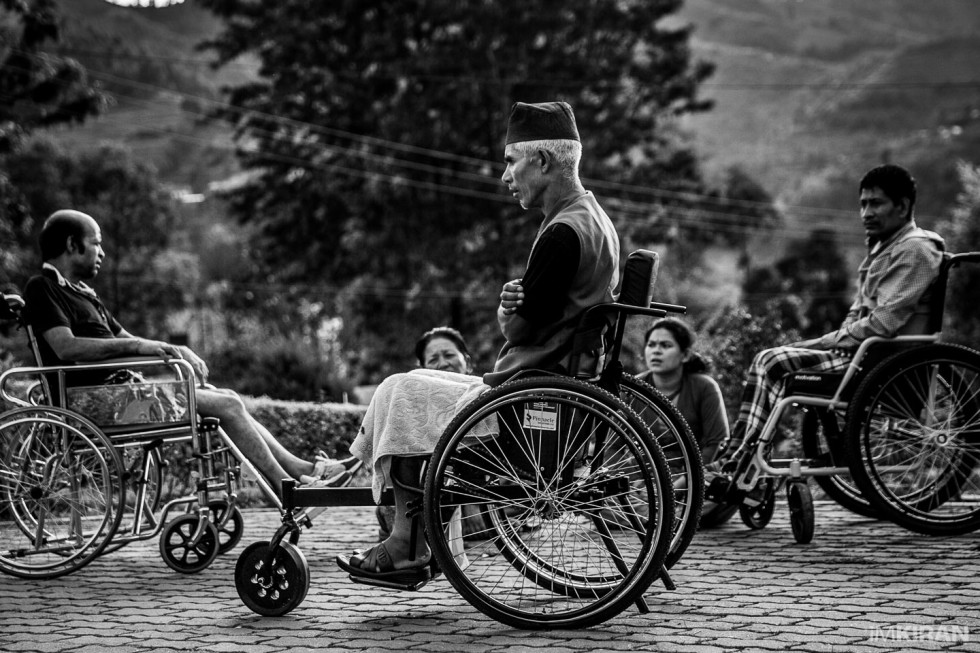
A typical day every 5pm to 6.30pm… outdoor activities, means just sitting out in the open. Some silently looking out into the world, some conversations with others making life seem normal again. Different types of wheelchairs are giving out to each resident. A bigger type for the harsh conditions in Nepal as the streets here are not accessible or made for wheelchairs.
If you have ever seen the streets in Nepal, you will understand. It’s nearly impossible to even walk on the streets without a car or motorbike knocking you down, there are accidents everyday. How would it be in a wheelchair here? How would they do this in their mountain villages?
Many disable children and elderly who are unable to cope with this end up begging in the streets. The only form of earning a daily income. Centres like this provide all the necessary guidance and education to adapt with this new life, providing them treatments, therapy and consultations. Unfortunately there is only one centre in Nepal.
6.30pm
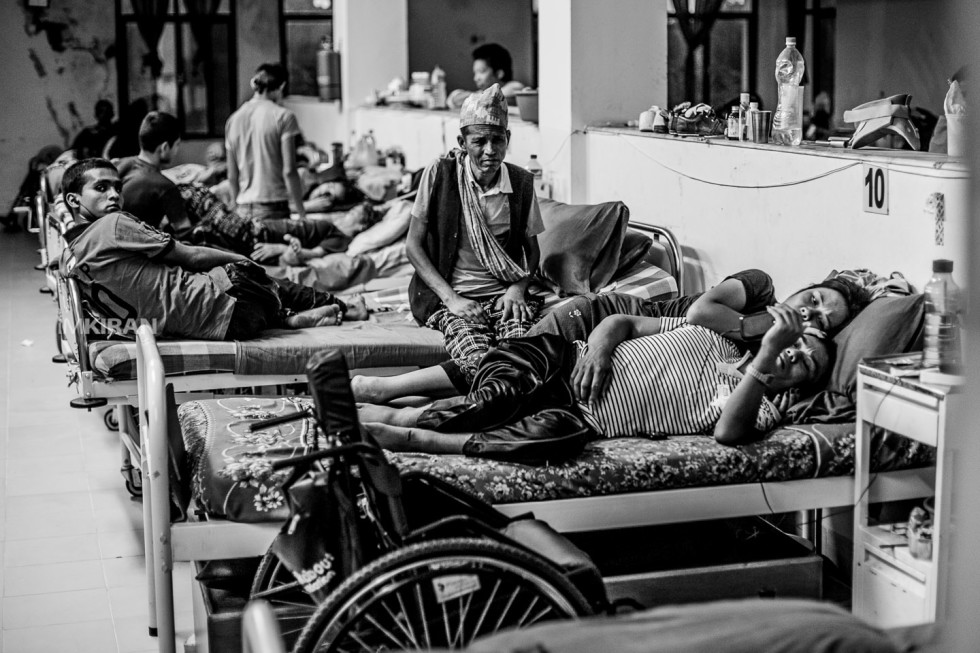
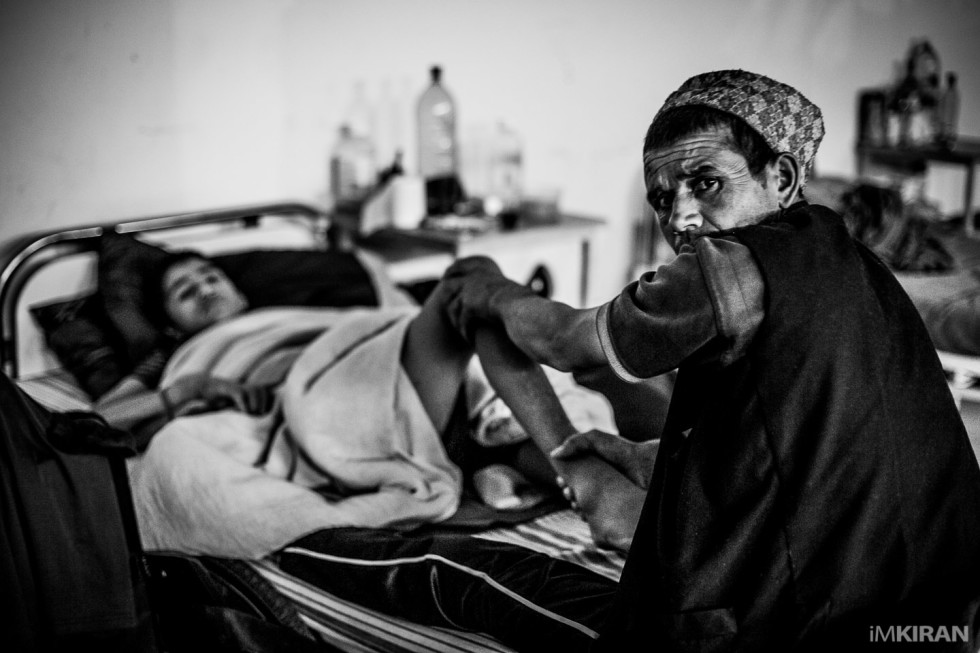
In the evenings. Couples rest in their beds. Some just sleep or watch tv. Others mingle with new comers. A father massages the legs of his son. A routine they do daily.
7.00pm
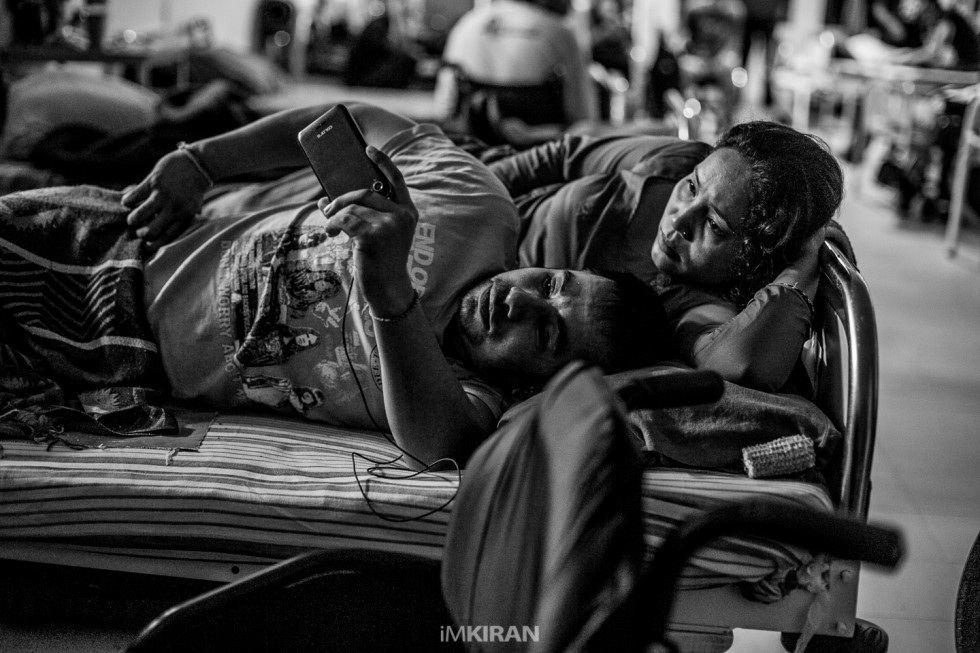
A couple watching a Nepali movie via handphone. They spend hours doing this. I guess its only way to get away from the reality here. Her husband is getting treatment for his back injury here.
7.30pm
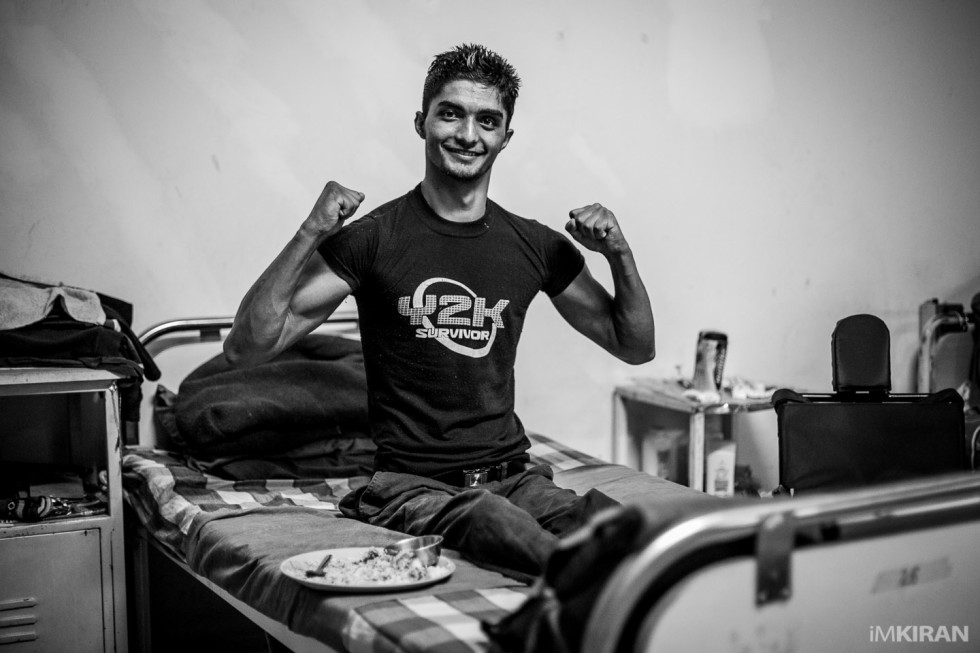
A young teenager I met, called Biraj. He has build his upper body so well to handle the wheelchair, being motivated to get back to life again. He wishes to continue his education in the city as after the injury he is unable to go back to his mountain village, with no income or funds he is unable to go anywhere. He still waits for donors to help. “I’m so confused on what should I do now. Where do I go from here?”
Later he added me on Facebook and it was really strange to see his profile picture. It was him surfing on snow in the mountains of Nepal a few months ago.
8.30pm
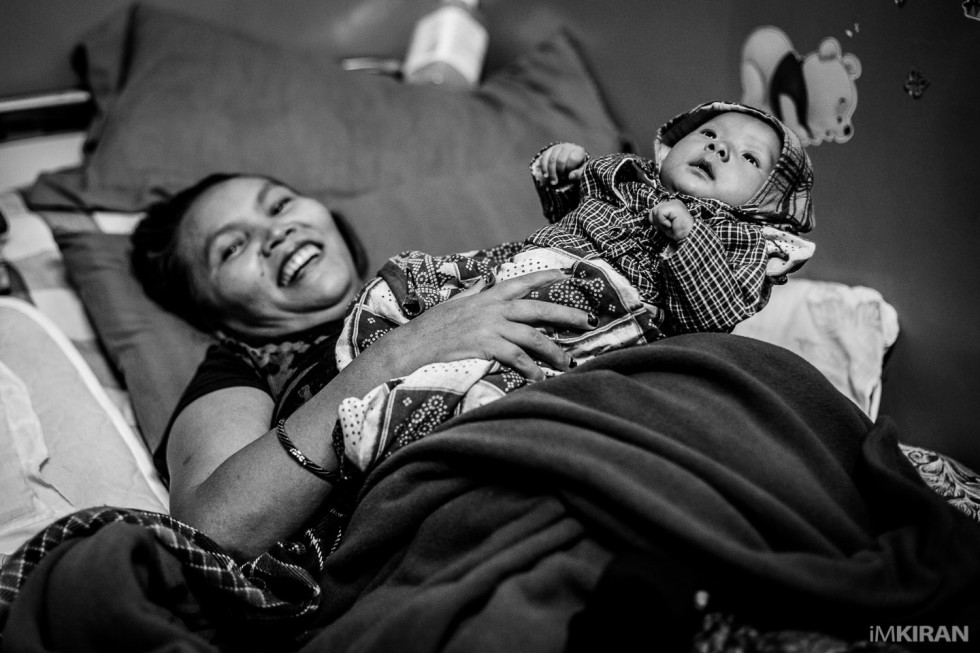
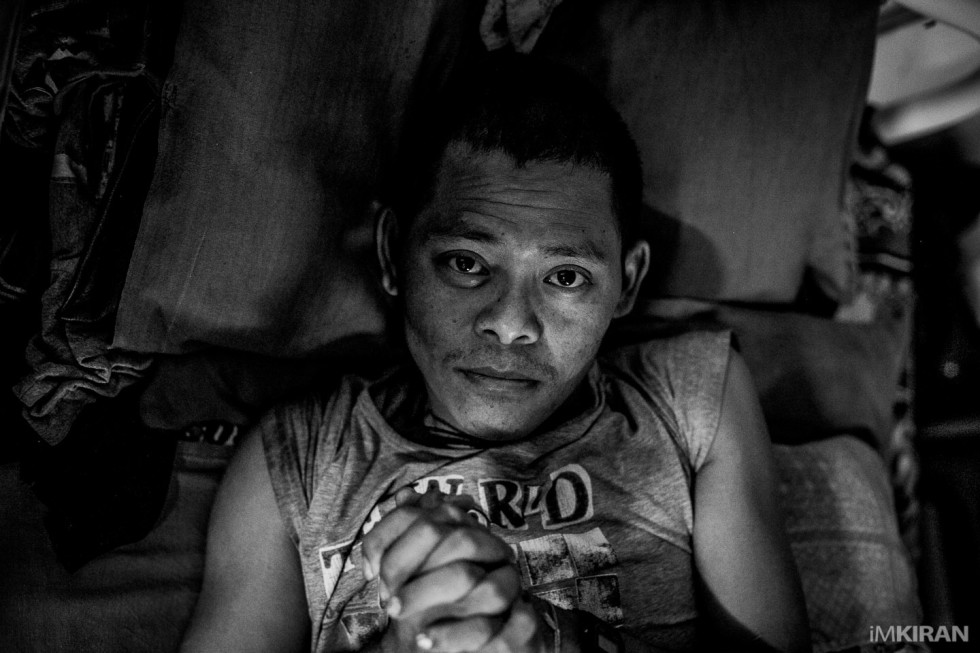
The night appears to be different here. Not my usual night, I usually spend time going out for dinner, then walking the streets, coming back to sit on my laptop working. Here a mother who is paralysed cares for her baby. A man lies on bed recovering from his low back pains, his spinal injury, left alone to care for himself.
9.30pm
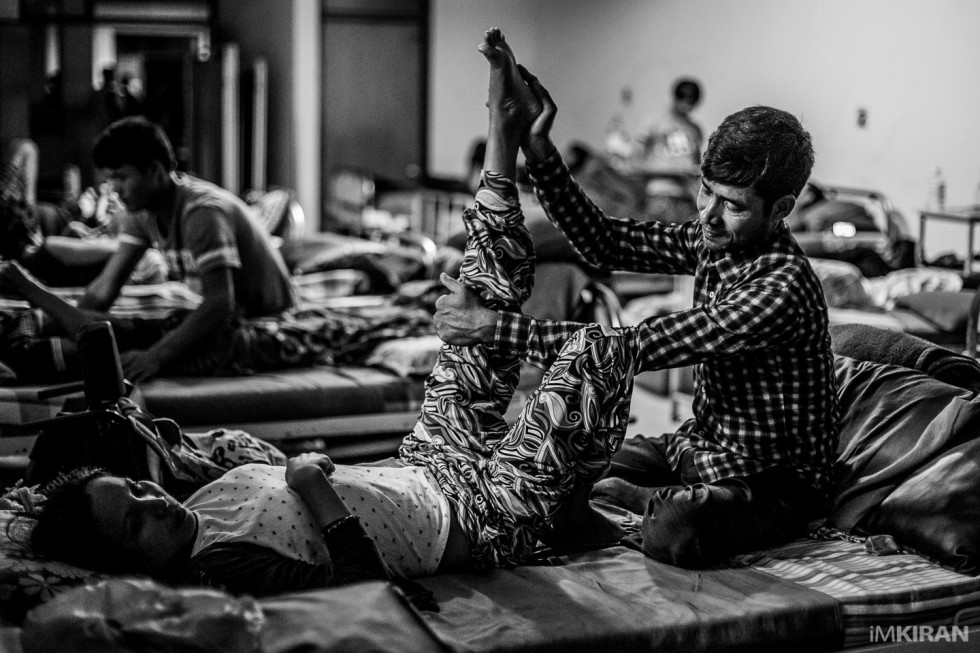
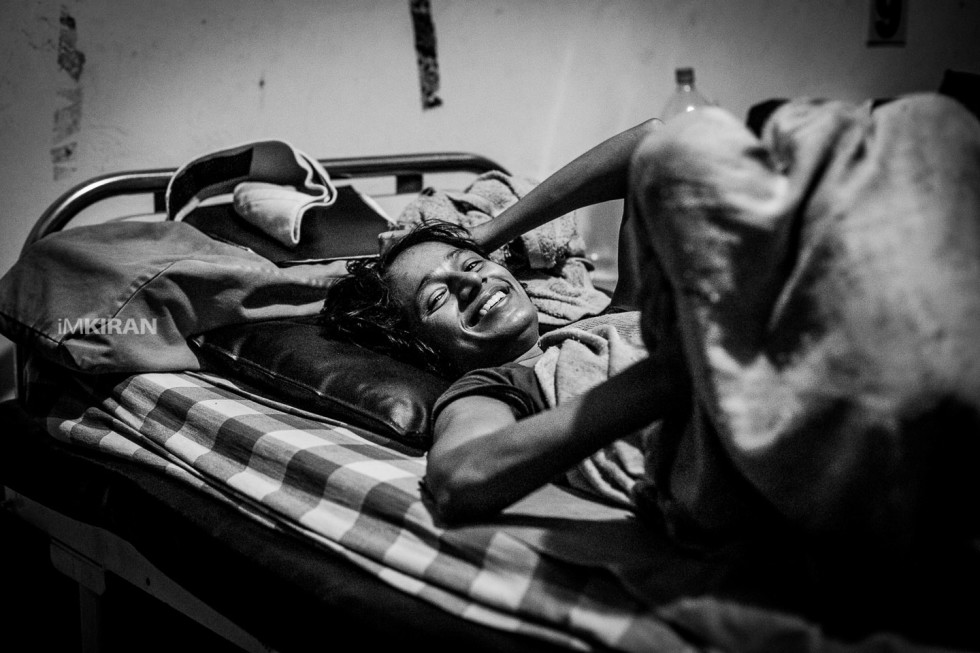
Caretakers = Family, people who stay by your side when you are in your worse conditions. Unconditionally.
10.00pm
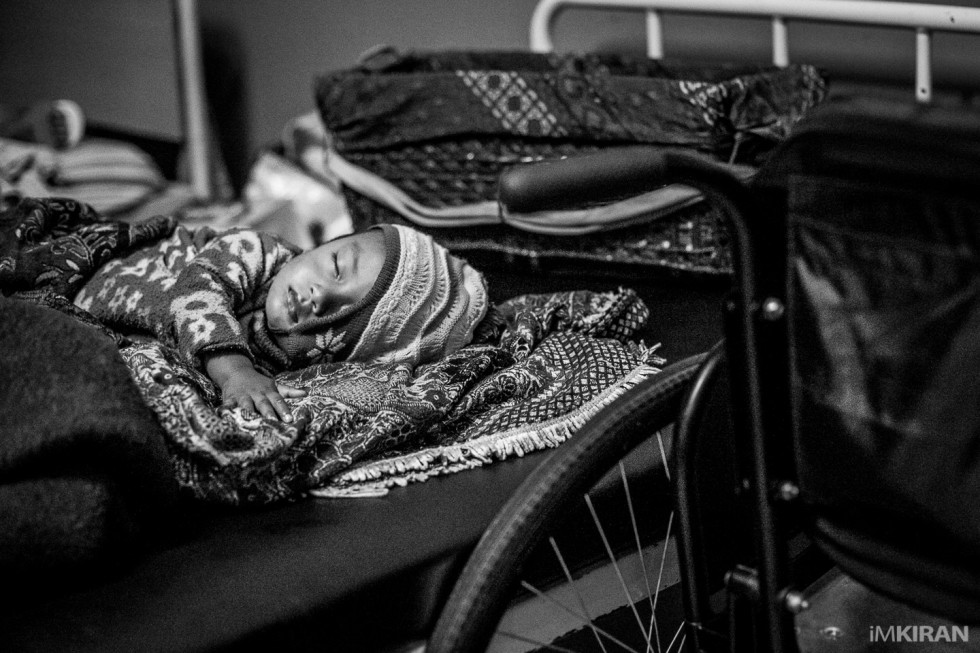
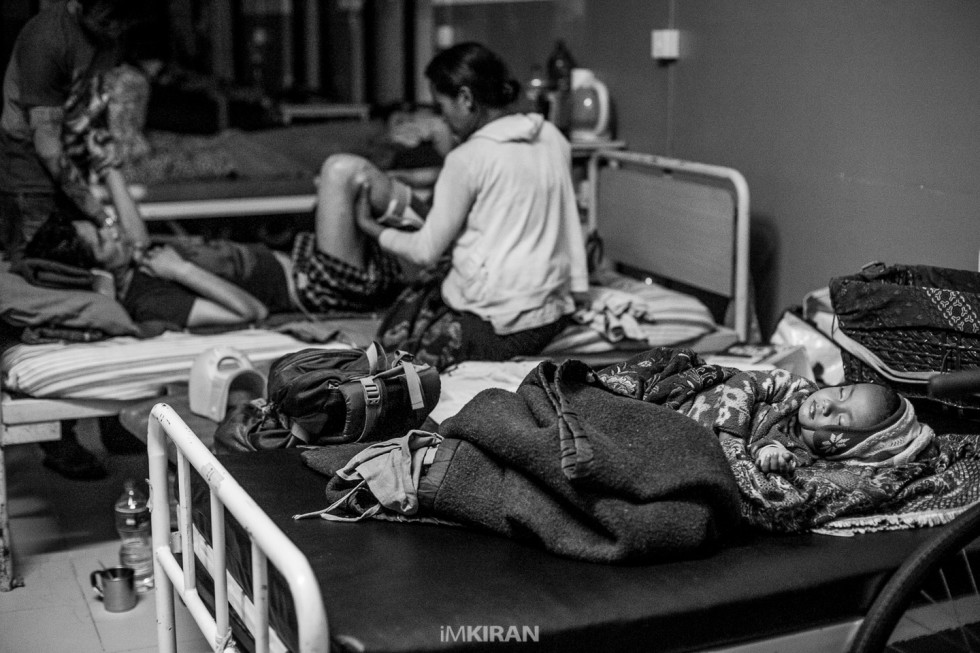
A baby sleeps while the mother cares for the father. The baby doesn’t realise that one of the parent is injured today.
10.30pm
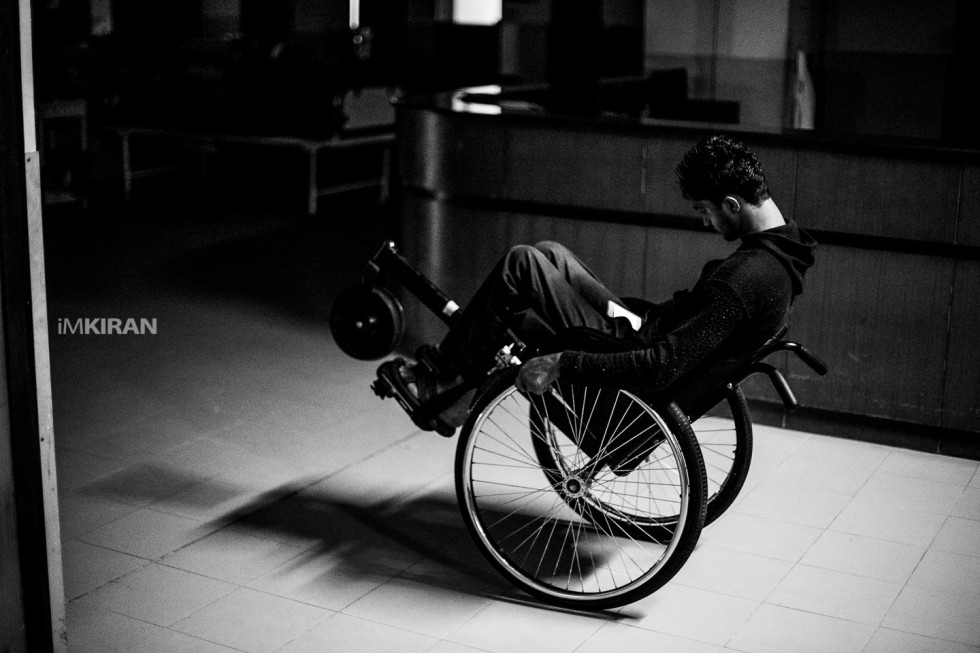
Biraj just letting time pass.. as you only have time and space here.
11.00pm
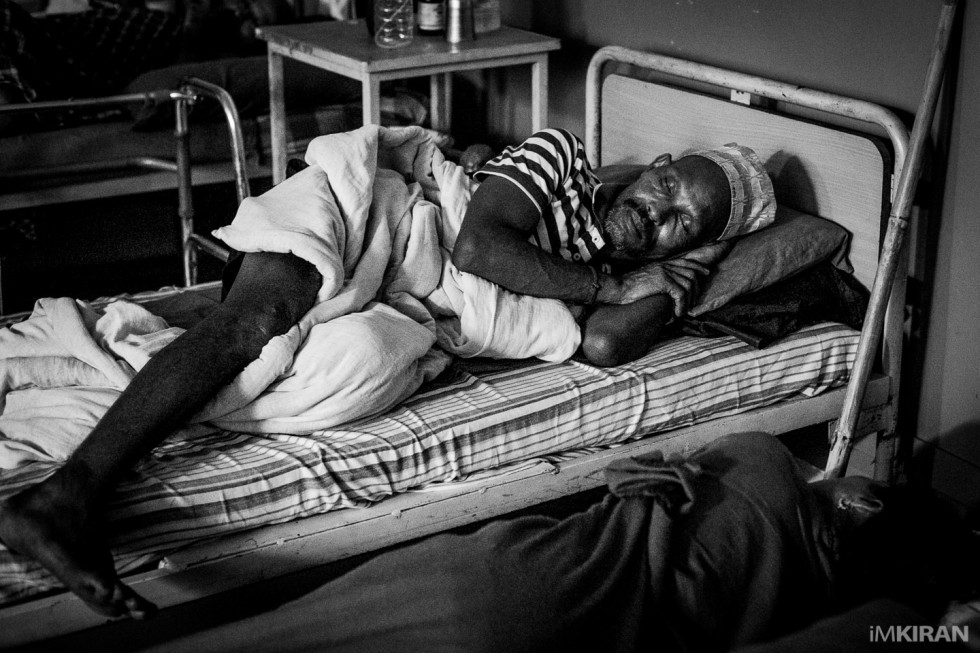
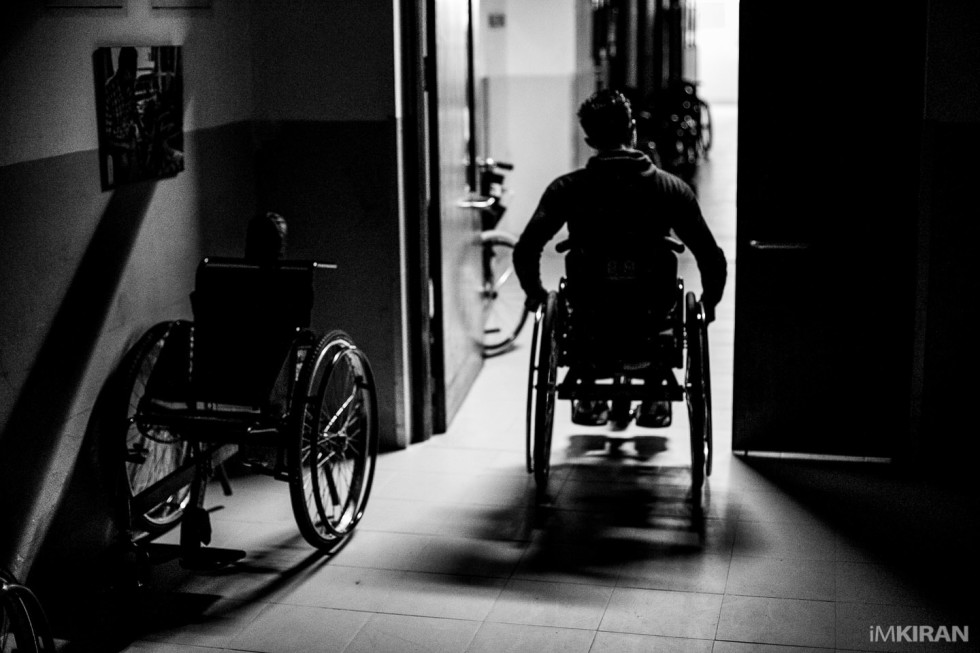
Some get into bed early, some stay up late.. scrolling through the same doors, the same alley… every night. Everything seem familiar here, a same faces, the same walls, the same corridors.
11.30pm
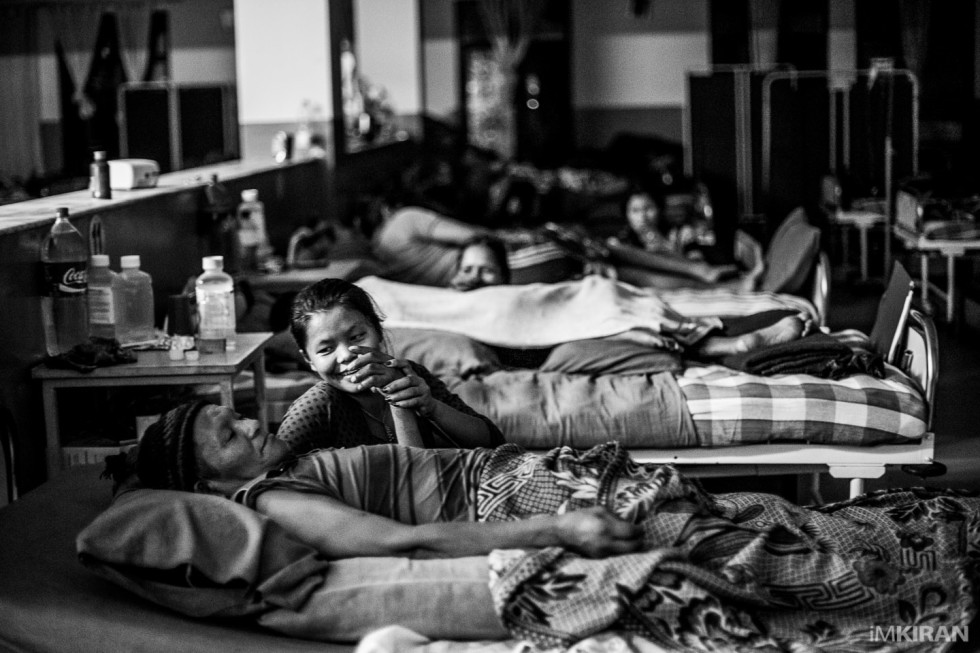
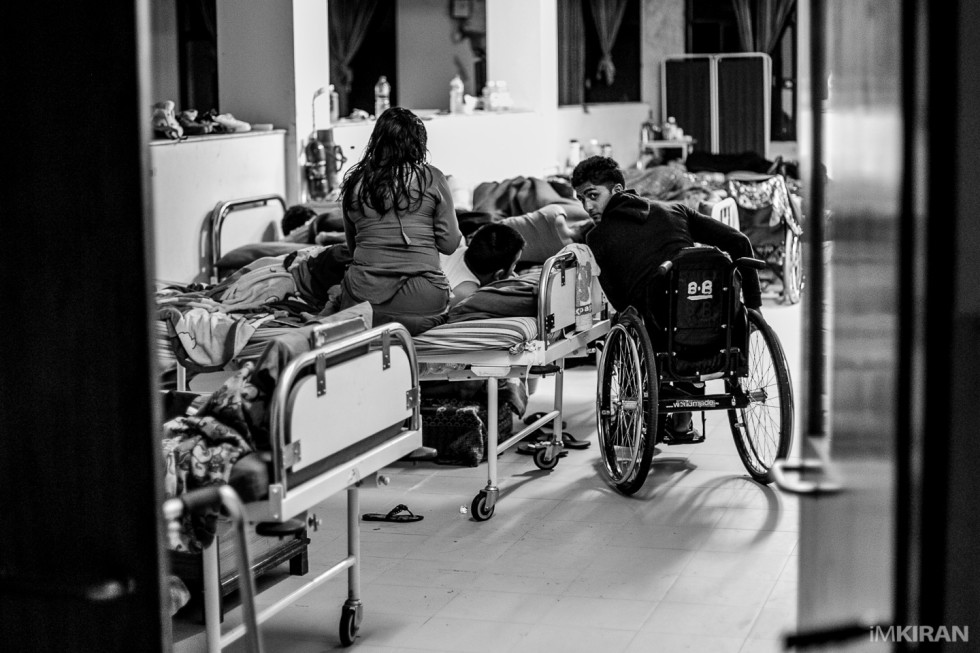
Caretakers make sure to get their loved once into bed first, before they set up their sleeping areas by their sides. Usually just sleeping on the wooden plank with a bed sheet. A wooden plank that becomes their home today.
12.30am
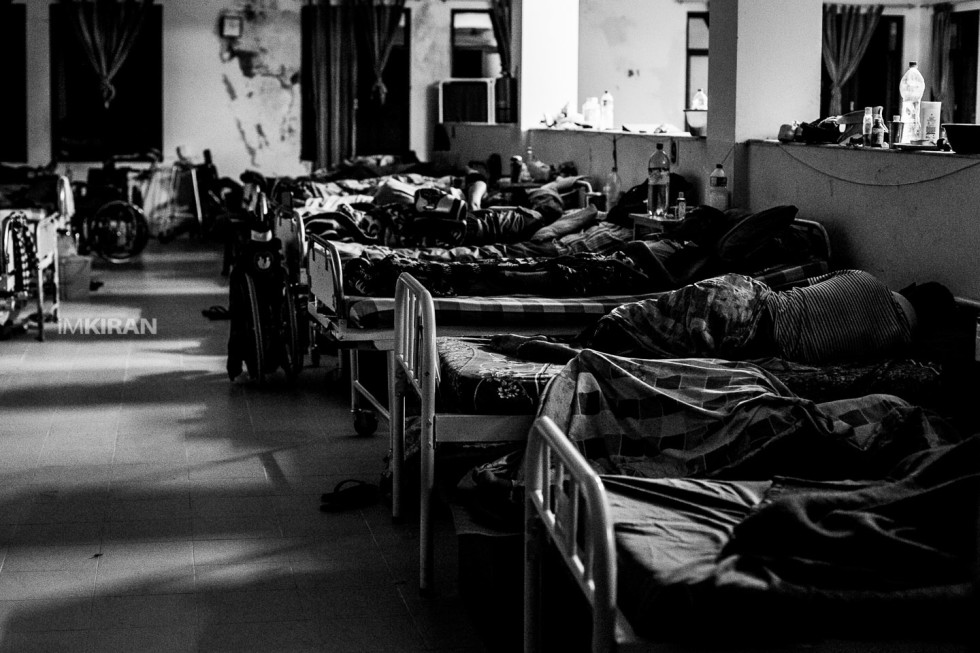
Tomorrow everything starts all over again. Tomorrow life will be the same, a routine. Tomorrow I will head back to my life, leaving them behind to deal with their own. A reality that I have to live with. Their pains and sorrows will follow me now, in my journey, in my space.
Share to help create an awareness of what goes on with lives of people dealing with spinal injuries after an earthquake. A behind the scene view of those who are learning how not to walk again.
Learn more about the work of SIRC, Nepal at http://www.sirc.org.np/
